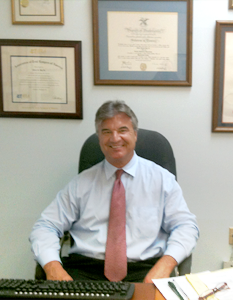Studies show that a staggering number of nursing home employees violate their positions of trust by abusing those left under their care and supervision. If you are in a nursing home, and you have experienced or witnessed nursing home abuse or neglect, or if a loved one has experienced elder abuse, please contact our highly-experienced, compassionate and skilled Boston, MA nursing home abuse lawyers. Our knowledgeable and nationally honored elder neglect attorneys are available 24/7 to discuss your potential case in a free and confidential consultation. Please call 617-787-3700 or email info@gilhoylaw.com for expert legal advice and assistance!
Nursing Home Abuse in Massachusetts
As lawmakers and law enforcement agencies have turned greater attention to nursing home abuse and neglect, the general public has become increasingly aware of the severity of the problem. In turn, startling statistics are beginning to emerge regarding the prevalence of abuse and neglect of our seniors living in nursing homes and assisted living facilities. One of the biggest reasons for the increased frequency of nursing home abuse is the fact that between 70% and 80% of such cases go completely unreported. The lack of reporting can be fairly attributed to a number of factors, including but not limited to:
- The victims’ lack of knowledge about where to seek help;
- The family’s lack of awareness that the abuse is taking place;
- The nursing home’s lack of mandatory reporting procedures; and
- The government’s failure to provide routine and thorough and routine inspections of the licensed facilities.
One of the most important ways to ensure that nursing home abuse is reported and properly addressed is to inform Massachusetts seniors and their relatives of their rights under the law. In fact, seniors in general and residents of Massachusetts nursing home facilities, in particular, have a variety of rights under both state and federal law. The state nursing home abuse laws are found in the Massachusetts General Laws, Chapter 111, Sections 72F-72L. The federal elder abuse and neglect laws and regulations are contained primarily in the 1987 Omnibus Budget Reconciliation Act.
Nursing home abuse comes in many forms and can cause a variety of personal injuries to nursing home residents. The most obvious form of abuse is that which results in actual physical injuries. Although the majority of nursing home residents are generally treated with dignity and respect, some are degraded and even tortured. The most common types of physical abuse include striking, pushing, slapping, pinching, spitting or otherwise roughly handling a resident. In the most extreme and tragic cases, the victims are sexually assaulted or even beaten to the point of a wrongful death.
Many cases of physical abuse result in visible injuries, but in more subtle cases, verbal and emotional abuse can cause equally serious harm and drastically reduce the quality of life for nursing home residents. In refusing to provide a high standard of care, nursing home facilities may be violating state-mandated regulations.
Personal Injuries Resulting From Nursing Home Abuse and Neglect
According to the Massachusetts Department of Elder Abuse and Protective Services, relatives of nursing home victims often fail to spot nursing home abuse. Moreover, the elderly victim often fails to communicate to others that the abuse or neglect is taking place. In light of these sad facts, it is important for Massachusetts nursing home residents and their relatives to know the warning signs of nursing home neglect or abuse. The following signs may be indicative of physical nursing home abuse:
- Excessive or unusual bruising or bleeding;
- Inexplicable fluctuations in appearance or weight;
- Wounds, cuts, burns or broken skin; and
- Poor hygiene and soiling.
In particularly egregious cases, victims may die as a result of their mistreatment. Nursing home residents suffering from mental or physical handicaps need only to be left unsupervised for a short period of time in order to be able to harm themselves beyond saving. Inexperienced or poorly trained nursing home employees may be unprepared to provide for handicapped nursing home residents.
Another common situation for injury involves a resident who is left alone to wander outside the facility. Sometimes, they then die of dehydration, hunger or exposure. Sadly, the family of the deceased is often without any answer from the nursing home as to what actually happened.
The more subtle elder neglect signs can often be more difficult to spot than outright physical abuse. Elder neglect is defined to include the failure of the employees of a nursing home facility to establish and maintain the standard of care necessary to avoid physical and mental harm or emotional distress. All Massachusetts nursing home employees are, therefore, responsible for carrying out their duties to provide their services in a way that does not cause their residents any physical or emotional harm. The following are the most common signs of psychological or emotional elder neglect:
- Physical or emotional changes or withdrawal of an otherwise active and outgoing person;
- An unhygienic or messy living environment;
- Strange and unusual changes in behavior, mood or routine; and
- Unusual financial transactions.
It is crucial for the relatives of nursing home residents to monitor the living conditions and physical/emotional state of their loved ones. Their very lives may depend on it! In fact, whenever elder abuse or neglect is suspected, the relatives of nursing home residents may be the only individuals capable of providing immediate help. The following steps should be taken right away if you have suspicions of abuse:
- Visit the nursing home multiple times, and thoroughly discuss your suspicions with your loved one, as well as the nursing home employees;
- Speak to the doctors, nurses and other health care providers working at the facility;
- Voice your concerns with the nursing home/assisted living facility administrators; and
- Get your loved one immediate medical assistance if you believe their health or life is at risk
And, perhaps most important, contact an expert Boston, MA nursing home abuse lawyer. You can reach us at 617-787-3700 or email info@gilhoylaw.com for a free and confidential consultation. Your needs are our top priority!



